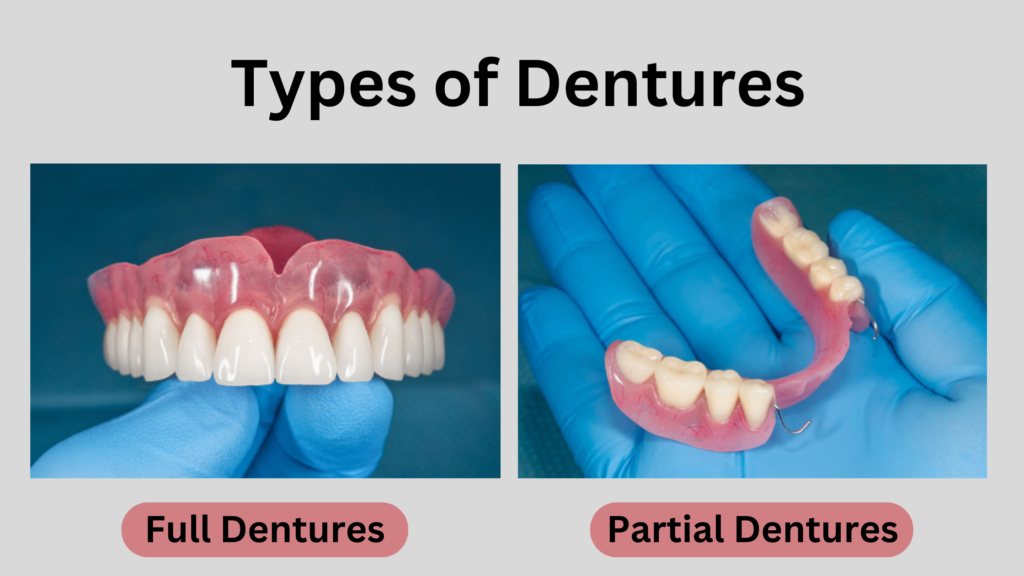
Tooth loss is a common concern affecting millions worldwide, often causing embarrassment and discomfort while performing daily activities such as eating or speaking. However, with advancements in dental technology, dentures have become an excellent solution for restoring your smile’s appearance and functionality. At Ridgetop Dental Group, we specialize in providing custom-made full and partial dentures that look, feel, and function just like natural teeth. In this article, we will discuss the differences between full and partial dentures, their advantages, and how to determine the best solution for your dental needs.
Dentures are custom-fitted prosthetic dental appliances designed to replace missing teeth and surrounding gum tissue. They provide numerous benefits, including improved aesthetics, restored oral function, and support for facial muscles, preventing a sunken appearance. There are two main types of dentures: full (complete) and partial. The choice between the two depends on the number of missing teeth and the patient’s individual preferences and requirements.
Full dentures are used when all teeth in the upper or lower jaw need replacing. They consist of a custom-made acrylic base fitted with prosthetic teeth held in place by either suction, adhesives, or dental implants. Full dentures offer a complete solution to tooth loss, restoring the patient’s ability to eat, speak, and smile with confidence.
Partial dentures, on the other hand, are usually recommended when several teeth are missing, but some natural teeth remain. They are made up of a customized acrylic or metal framework that supports artificial teeth and clasps that attach to the remaining natural teeth. Partial dentures help maintain the stability and alignment of the patient’s natural teeth, preventing them from shifting over time.
Full Dentures: A Complete Smile Makeover
Full dentures, or complete dentures, offer a comprehensive solution for patients who have lost all their teeth in one or both arches. These prosthetic devices consist of a gum-colored acrylic base fitted with replacement teeth designed to mimic the appearance and function of natural teeth. Full dentures can be supported by natural suction, dental adhesives, or implant-supported technology.
One significant advantage of full dentures is their drastic improvement in a patient’s ability to chew food and speak more clearly. Additionally, dentures provide critical support for facial muscles, preventing a sunken or aged appearance. However, adjusting to full dentures may require time and patience, as the muscles and soft tissues of the mouth need to adapt to the new appliance.
Partial Dentures: Preserving Your Remaining Teeth
Partial dentures are the ideal solution for patients who have lost several teeth but still have healthy natural teeth remaining. They comprise a custom acrylic or metal framework that supports the artificial teeth and clasps or precision attachments that secure the partial denture to the patient’s existing teeth. Partial dentures not only fill the gaps left by missing teeth but also prevent the neighboring natural teeth from shifting out of place over time.
Partial dentures offer various advantages, including a more comfortable and natural feel, ease of cleaning, and improved oral function. Additionally, preserving the patient’s remaining natural teeth can help maintain an optimal bite, leading to better overall dental health. However, partial dentures may require occasional adjustments and relining to maintain an optimal fit and comfort.
Implant-Supported Dentures: Combining Stability and Comfort
Implant-supported dentures represent an innovative and increasingly popular option for patients who desire added stability and comfort in their denture experience. This solution involves placing dental implants into the jawbone, which are then used to secure either full or partial dentures. Depending on the patient’s preferences, implant-supported dentures can be removable or fixed.
Implant-supported dentures provide several significant benefits, including improved stability, reduced gum irritation risk, and jawbone density preservation. Additionally, patients often report enhanced comfort and chewing efficiency with implant-supported dentures, as the secure attachment minimizes movement and slippage. However, this option may have a higher initial cost and requires a healthy jawbone to support the dental implants.
Caring for Your Dentures: Ensuring Longevity and Comfort
Maintaining proper denture care is crucial to preserving your dental appliance’s longevity, appearance, and comfort. Regular cleaning and check-ups with your dentist will help keep your dentures fitting well and looking their best. Some essential tips for caring for your dentures include:
- Clean your dentures daily with a soft-bristled toothbrush or denture brush, using a mild denture cleaner or soap.
- Remove and rinse your dentures after eating to eliminate food particles.
- Keep your dentures moist when not in use, soaking them in water or a denture solution to prevent them from drying out and losing their shape.
- Handle your dentures with care, ensuring they do not bend or damage their delicate components.
- Attend regular dental check-ups and inform your dentist if you experience any discomfort or changes in the fit of your dentures.
The choice between full and partial dentures depends on your unique dental needs, preferences, and goals. At Ridgetop Dental Group, we are dedicated to helping you achieve the perfect denture solution to restore your smile, confidence, and overall dental health. Our experienced team will guide you through the entire denture process, from assessment and treatment planning to fitting and aftercare.
Don’t let missing teeth hold you back from enjoying life to the fullest. Schedule a consultation for partial dentures with Ridgetop Dental Group today, and let us help you rediscover the joy of a confident, radiant smile.
